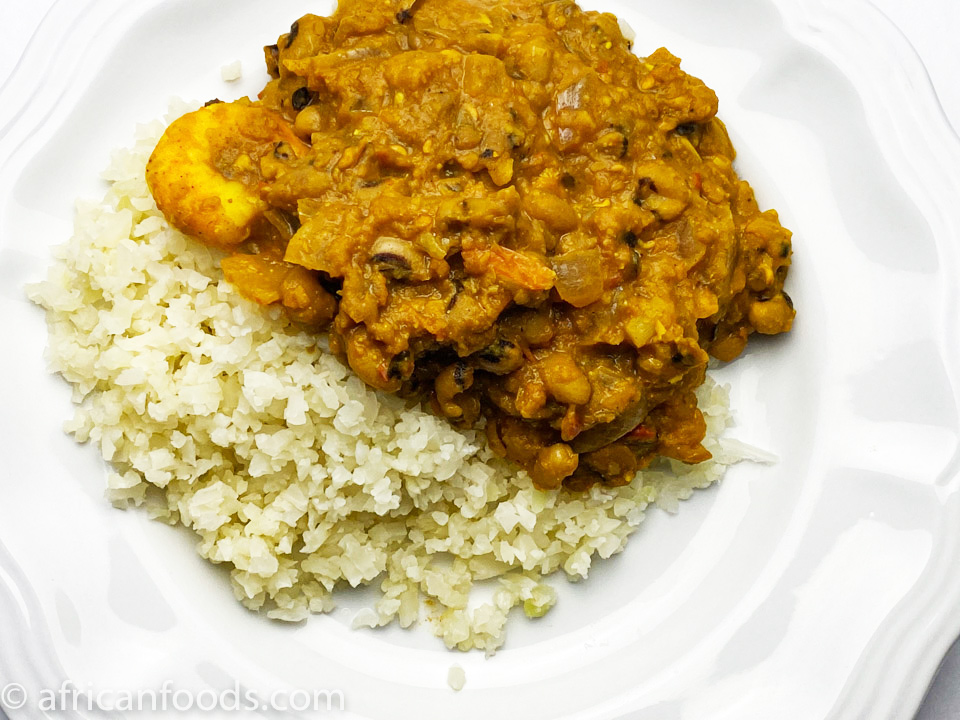Cowpeas
Cowpeas are annual legumes of the botanical family Vigna Unguiculata. Common varieties include the black-eyed beans or Southern pea. They are a nutrient powerhouse and should form part of a healthy diet.
Cowpeas are beans of different colours with a great nutty flavour. Colours could be marbled, green, red, brown or white. The red and brown varieties are more common. They are legumes and very rich in protein and other nutrients. Botanically referred to as Vigna unguiculata.
They may not be popular in the West as 70% of the world’s cowpeas production comes from Sub Saharan Africa, especially Nigeria.
They were introduced to the Caribbean and North America during the slave trade. As the slaves longed for the food, they were familiar with from Africa. It is no wonder then, that many of the beans or pea recipes look similar to their West African counterparts. Cooking may be different, but as humans, we adapt to what is available where we live and make the most of our circumstances and still enjoy great food.
Are Cowpeas Good For Your Health?
Cowpeas are legumes and are a great source of protein, about twenty-five per cent protein. They have a low glycemic index and contains soluble and insoluble fibre. Hence, they fill you up for longer. They do not contain trans-fat but contains beneficial fat, have no cholesterol—great food for weight loss.
They contain calcium, vitamin A and a group of vitamin B (thiamine – vitamin B1, riboflavin – vitamin b2, niacin – vitamin B3), as well as vitamin C, all necessary for maintaining good health and fighting diseases.
They are also rich in folate, iron, magnesium, potassium, phosphorus, zinc and selenium. If you are vegan or have some meatless days during the week, you should consider including legumes as a nutritious meat alternative. The National Heart, lung and blood institute recommends between 3-5 servings a week depending on your gender or calorie goal.
Like other legumes, cowpeas with rice alone would provide a highly nutritious balanced diet that can wipe out many malnutrition diseases seen in developing countries. Cowpeas is widely cultivated in Africa, hence, affordable to very poor people. But the good news is, they are not poor in nutrient!
What Does Cowpeas Taste Like?
Cowpeas have a nutty flavour and taste. They often take on the flavours of any sauce you cook them in. Cowpea flavour can be improved by adding chillies, garlic, tomatoes and onions. Incorporate them in salads and sandwithces.
How To Cook Cowpeas?
For excellent results and less energy, soak it in a bowl or pot over night. Drain and rinse thoroughly before cooking. See our basic recipe page first for a detailed basic cowpeas recipe. Then, try the following cowpeas recipe:
Curried Cowpeas Recipe
|
Servings: 6 |
Prep Time: 15min |
Cooking Time: 40min |
Ingredients
- 4 cups cooked cowpeas check here for how to cook cowpeas from scratch or use 3 140z caned ones
- 2 tablespoons olive oil
- 4 plum tomatoes
- 1 cup of fried shrimp(optional)
- 1 large bell pepper
- 1-2 scotch bonnet or any fresh chilli pepper of choice
- 1 medium-sized onion, chopped
- 1 tablespoon curry powder
- 2 teaspoon garlic powder
- 1 teaspoon ginger powder
- 1 teaspoon chilli pepper flakes
- 250ml vegetable stock
- salt to taste
Method
Blend the tomatoes, bell peppers and scotch bonnet. Then, set aside.
Measure out your herbs and spices in the same container.
Heat a heavy-based pot over medium heat.
Pour in the olive oil and saute onion when oil is hot, until translucent. This should take about 5-6 minutes
Stir in the curry, ginger, garlic and chilli pepper flakes. Continue stirring for about 3 minutes.
Pour in the tomato mixture. And allow cooking for about 15-20 minutes.
Pour in the vegetable stock to the mixture and add beans. Continue cooking on medium-low heat for about fifteen minutes or until you get your desired consistency. Stir in your shrimps if using.
Serve immediately on a bed of rice, or with bread, plantain or sweet potato.
Recipe provided by www.AfricanFoods.co.uk
Want regular updates on African cuisines and food recipes? What about unique health information about these foods - what to eat and avoid to keep healthy from the list of African recipes available?
Fill in the form below to subscribe to our Newsletter - AfricanFoods Weekly?
Worried about spamming? We are too. We will never ever give or pass on your information to anyone else. We will only use your email address to send you your copy of our weekly newsletter. We do have a zero tolerance to spam. We subscribe to a very strict policy on the handling and use of information we gather on this site! We also get paid for affiliate links on this site. See our privacy policy for further details.
Follow us on social media:
Get Our Weekly Newsletter. Subscribe Today. It's FREE.
Subscribe to African Foods Weekly
Get African food recipes, cooking tips, and healthy eating info delivered to your inbox every week. Simply fill in your email below and click SUBSCRIBE .
(Your information will not be shared)











New! Comments
Have your say about what you just read! Leave me a comment in the box below.